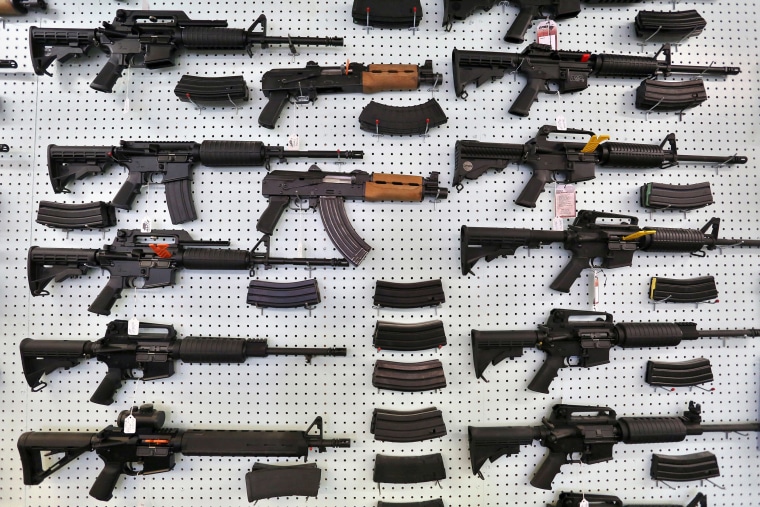The pattern is as familiar as it is exasperating: Americans recoil in response to the latest in a seemingly endless series of mass shootings; the public endorses potentially lifesaving reforms; proponents launch another concerted legislative push; and opponents desperately shield the status quo.
At that point, we collectively marvel at our political system's shortcomings, while waiting for the next gun massacre, at which point the process begins anew.
Will 2021 be any different? NBC News took stock yesterday afternoon:
On the heels of two mass shootings that have shocked the country, the Senate is, once again, weighing an overhaul of the nation's gun laws — with a murky path ahead. Despite President Joe Biden's pleas on Tuesday, two House-approved bills to close gaps in the background checks system don't currently have the 60 votes needed to clear the Senate, according to senators who have spoken with colleagues to gauge support.
To be sure, there are vehicles for potential action. Two weeks ago tomorrow, the Democratic-led House passed a pair of gun reforms, including a bill called the Bipartisan Background Checks Act, would require background checks on practically all firearm purchases. It passed 227 to 203, with eight Republicans breaking ranks and supporting the legislation.
There's a temptation to think a proposal like this one could pass: keep the Senate Democratic conference together; add some Republicans like Pennsylvania's Pat Toomey and Maine's Susan Collins; emphasize public-opinion polls; and explore ways to overcome a GOP filibuster. But in practice, it's not nearly that simple: not only is the 60-vote threshold too high a hurdle, but yesterday, Sen. Joe Manchin (D-W.Va.), who co-sponsored a narrowed background-check bill in 2013, denounced the House bill as overly ambitious.
Or put another way, the West Virginia Democrat has positioned himself to the right of eight House Republicans on the issue.
Senate leaders have vowed to hold votes on reforms, giving members an opportunity to go on the record on the issue, but in terms of legislative prospects, it would appear to be a fait accompli. The White House is eyeing a lifesaving assault-weapons ban and a ban on high-capacity ammunition magazines, all of which is wildly unrealistic if Congress can't even advance a background-check bill.
The door, however, is not completely closed. Sen. Chris Murphy (D-Conn.), a leading voice on gun reforms, told NBC News yesterday, "I think a universal background checks bill can get 60 votes."
Note, he said "a" bill, not "the" bill -- suggesting the House version can't pass, but perhaps a narrower proposal still has a chance.
Sen. Rob Portman (R-Ohio), who's retiring next year, added, "Tightening the background check system is possible. The House bill is too broad and goes too far for the Senate. But I think something is possible."
Much of the discussion is likely to focus on the 2013 bill crafted by Manchin and Toomey, which would've required background checks on firearm purchases at gun shows and online. A majority of the Senate supported the proposal eight years ago, but it couldn't overcome a GOP filibuster.
At the time, four Senate Republicans supported the Manchin-Toomey bill when it reached the floor, but only two of them -- Toomey and Collins -- are still in the chamber. (A handful of red-state Democrats also opposed the measure, but each of them was soon after defeated in their re-election bids.)
It's likely that this proposal will serve as the basis for a new round of negotiations. Under the circumstances, I'd recommend keeping expectations very low.

